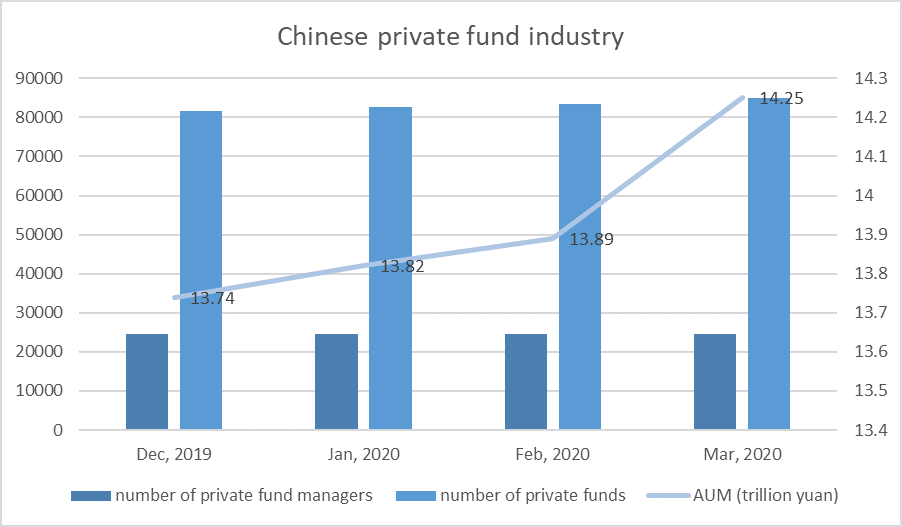As the Covid-19 pandemic makes Chinese assets more popular among foreign investors, foreign private fund managers are building up their positions and Chinese regulators are rolling out measures to support the flow of capital in and out of the private fund sector.
With China’s economy hit by the pandemic, China’s regulators are looking for measures to support enterprises and find new and efficient drivers of economic growth.
One possible measure is a shift towards direct fundraising, with private funds, in particular, contributing to the optimization of China’s economic structure by boosting innovation and driving growth, according to Hong Lei, chairman of the Asset Management Association of China (AMAC), speaking at a recent online conference on the venture capital (VC) sector.
Private funds in China include private equity (PE) funds, VC funds, and private funds invested in secondary bond and stock markets. In general, the private fund sector maintained steady growth, even as its PE sub-sector was hard hit by the pandemic in the first quarter of this year, recording a 7% decrease in deals and a 55% drop in transaction volumes compared with the same period last year.
As of March of this year, China’s 24,584 registered private fund managers oversaw 85,071 funds with a total of 14.25 trillion yuan (US$2 trillion) in assets under management, representing a 2.6% growth over February’s figure, according to AMAC.

Source: AMAC
Amid this backdrop, Chinese regulators are seeking to generate more momentum in the private sector. In mid-May, they rolled out new guidelines to drive cross-border PE and VC fund flows in the Greater Bay Area (GBA). These are part of a series of measures issued by China's State Council, the People's Bank of China, the China Banking and Insurance Regulatory Commission, and the China Securities Regulatory Commission, all calling for financial support in the construction of the GBA.
According to the new guidance, qualified institutional investors in Hong Kong and Macau investing in GBA-related PE and VC funds will received support via a qualified foreign limited partner (QFLP) scheme. As well, Shenzhen will support onshore PE funds investing overseas through a qualified domestic investment enterprise (QDIE) scheme. The Shenzhen sub-branch of the People’s Bank of China will also push to increase cross-border flows of PE and VC funds by rolling out measures to support more pilot programmes via QFLP and QDIE schemes.
The market expects the move to further attract inflows from overseas investors into the Chinese private fund sector. Since entering the market three years ago, foreign fund managers have been relatively quiet as, according to a Chinese securities firm, the products they issued failed to attract Chinese investors for various reasons, among them being the lack of a long-term track record in the country.
However, the current Covid-19 pandemic seems to have altered the situation as overseas managers have recently begun building up their positions in the Chinese private sector. As a result, according to simuwang.com, a Chinese data provider for private funds, over the February-April period, Value Partner’s Shanghai subsidiary registered three new private funds and UBS’s Shanghai subsidiary registered six new products.









